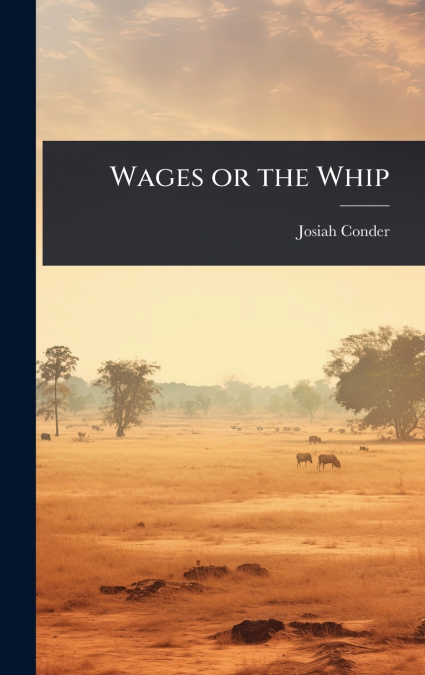
Josiah Conder
Wages or the Whip, penned by Josiah Conder and originally published in 1833, presents a stark examination of the economic and moral implications of slavery in the British West Indies. Conder meticulously contrasts the productivity and cost-effectiveness of free labor versus enslaved labor, advocating for the abolition of slavery on both ethical and practical grounds. This compelling treatise challenges the prevailing pro-slavery arguments of the time, providing detailed statistical analysis and firsthand accounts to demonstrate the superior efficiency of wage-based systems. Conder’s work serves as a powerful historical document, reflecting the passionate debates surrounding slavery and offering valuable insights into the economic dimensions of the abolitionist movement. 'Wages or the Whip' remains a significant contribution to the literature on slavery, colonialism, and labor economics, resonating with contemporary discussions on social justice and economic equality.This work has been selected by scholars as being culturally important, and is part of the knowledge base of civilization as we know it. This work was reproduced from the original artifact, and remains as true to the original work as possible. Therefore, you will see the original copyright references, library stamps (as most of these works have been housed in our most important libraries around the world), and other notations in the work.This work is in the public domain in the United States of America, and possibly other nations. Within the United States, you may freely copy and distribute this work, as no entity (individual or corporate) has a copyright on the body of the work.As a reproduction of a historical artifact, this work may contain missing or blurred pages, poor pictures, errant marks, etc. Scholars believe, and we concur, that this work is important enough to be preserved, reproduced, and made generally available to the public. We appreciate your support of the preservation process, and thank you for being an important part of keeping this knowledge alive and relevant.